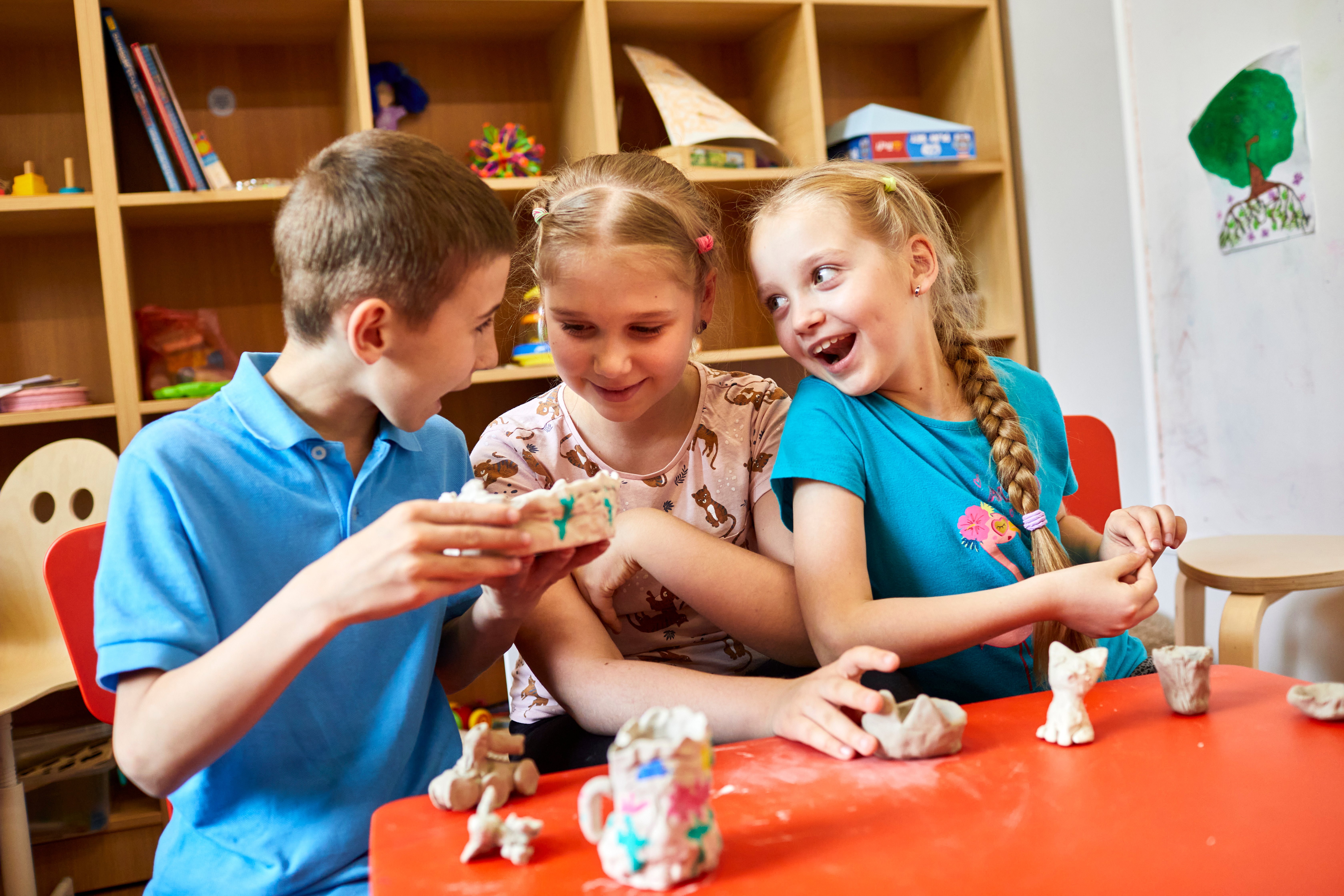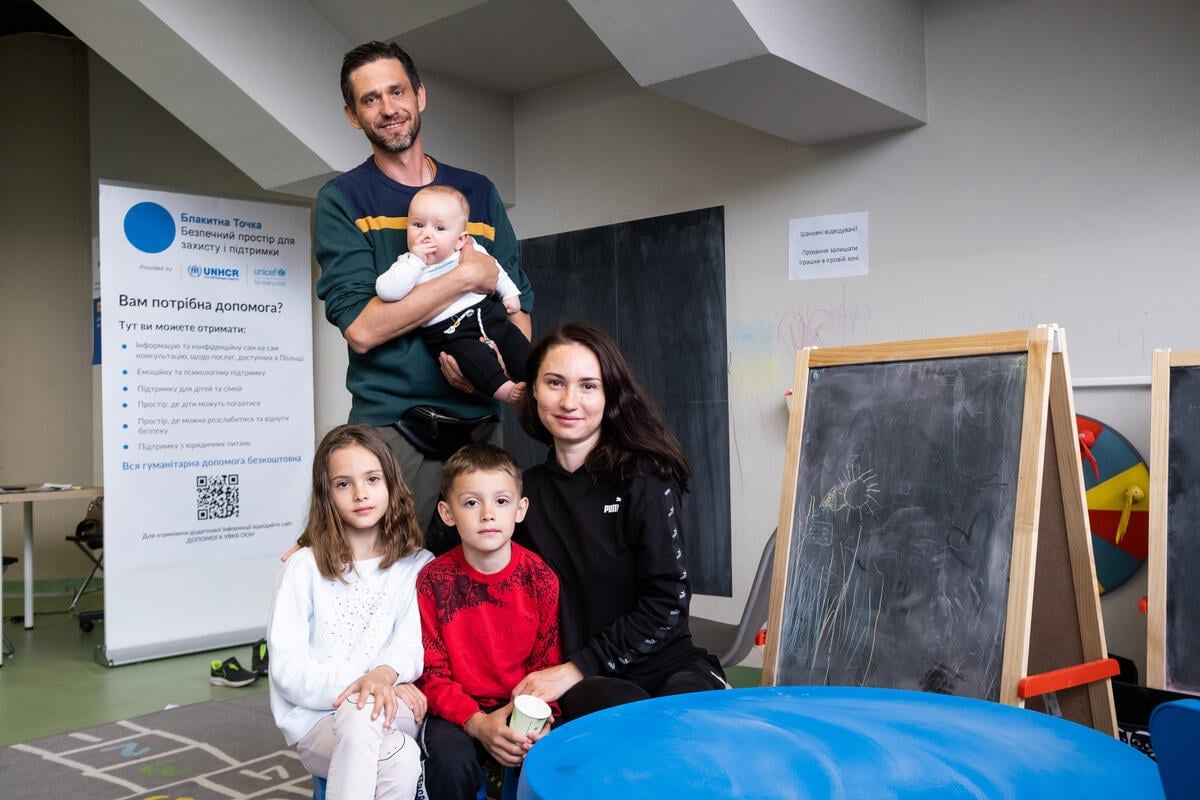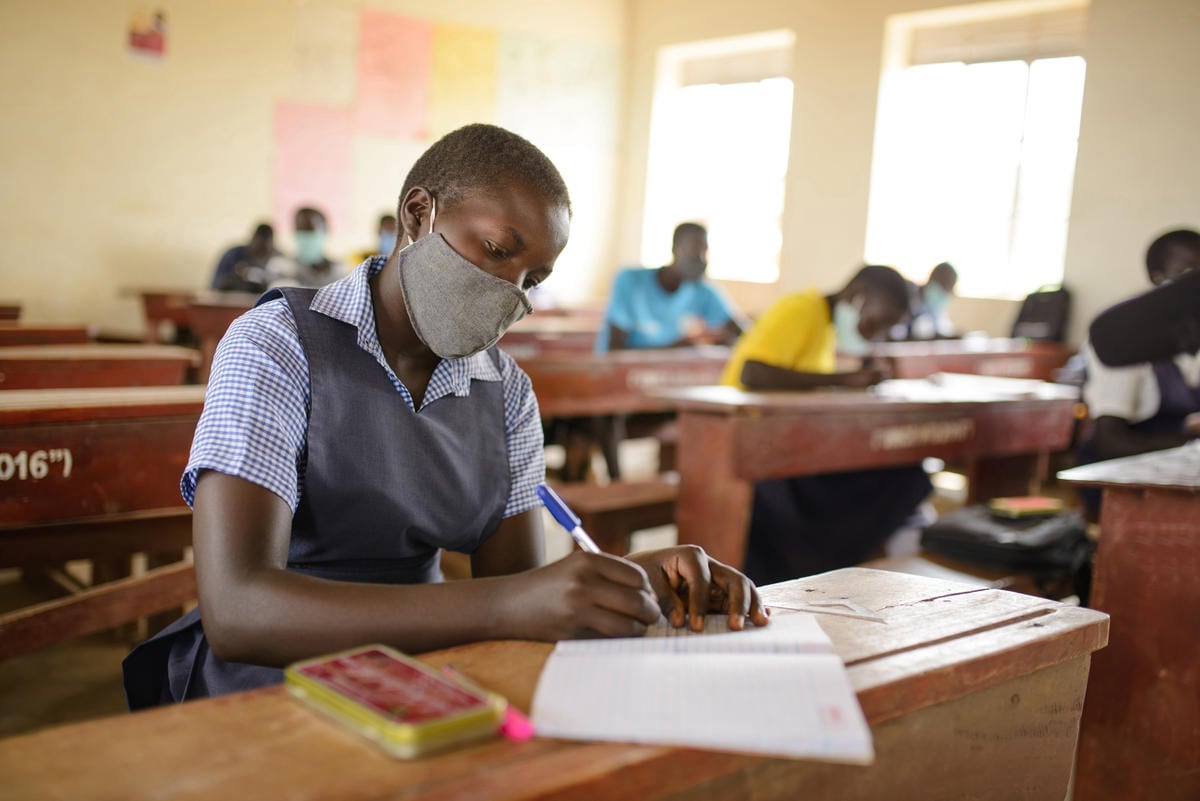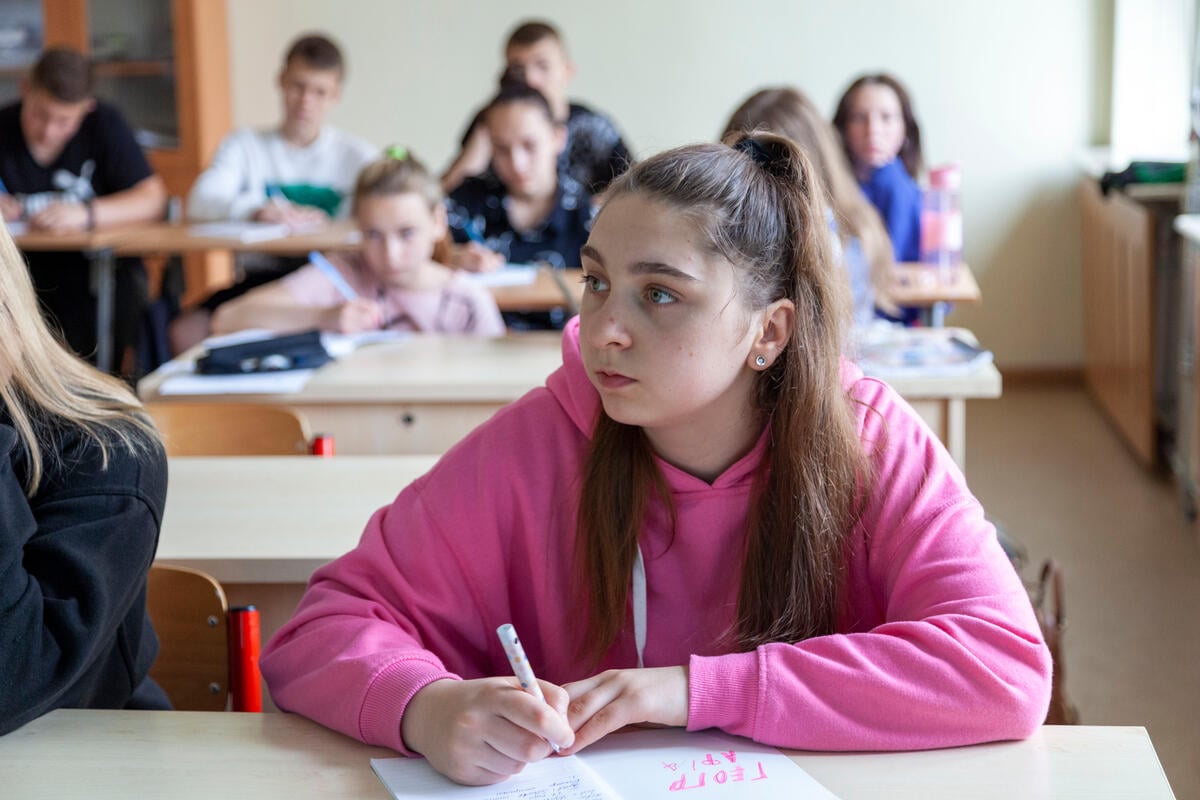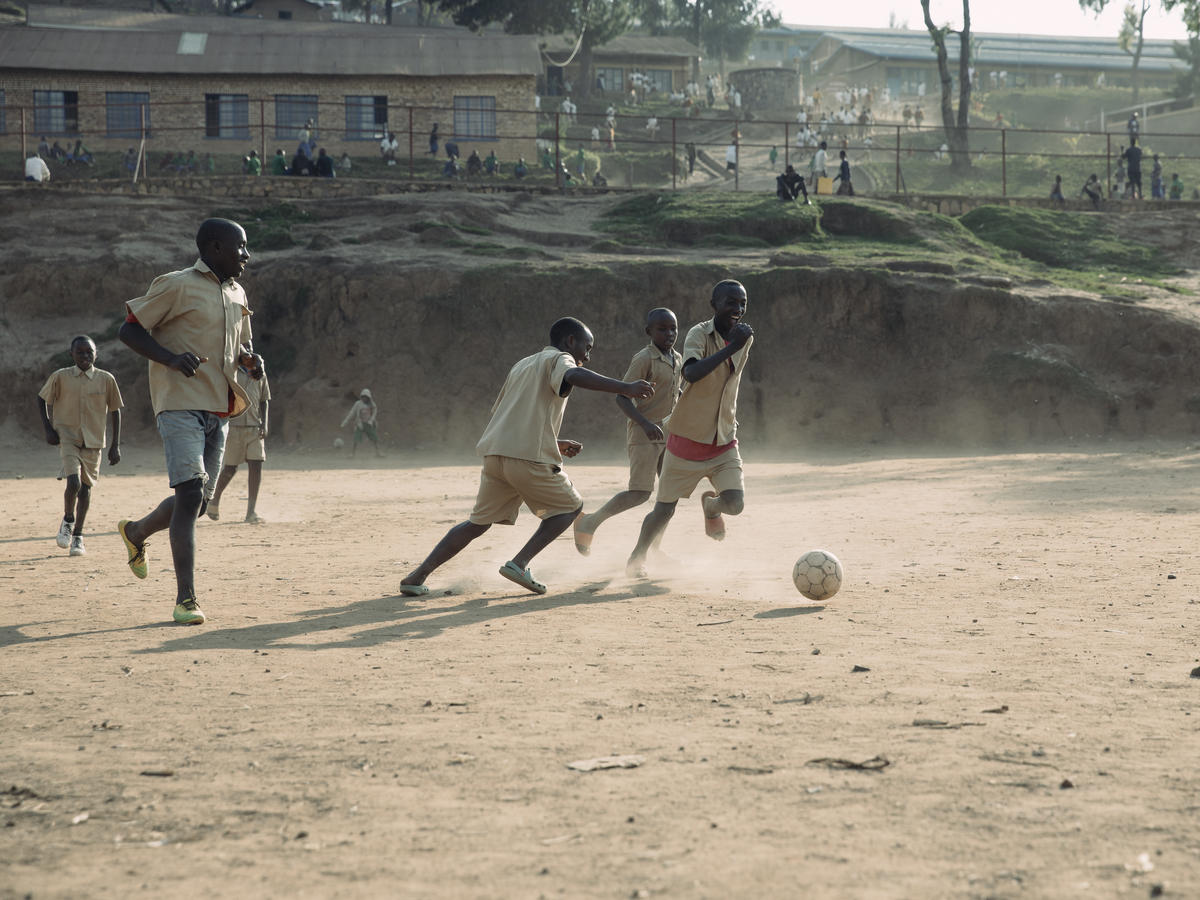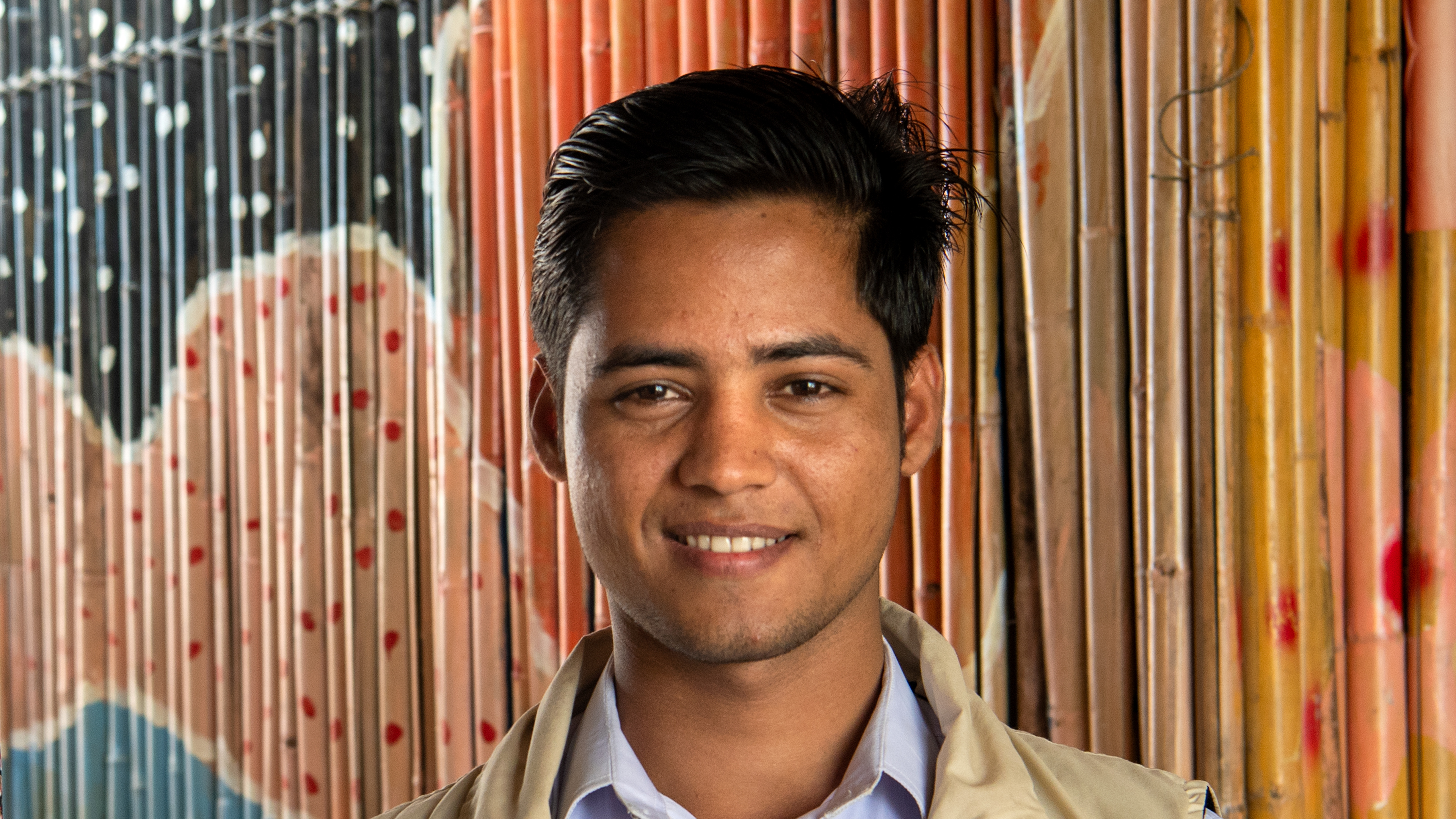A happy start to the New Year for one lost Darfur boy and his sister
A happy start to the New Year for one lost Darfur boy and his sister

GAGA REFUGEE CAMP, Chad 4 January (UNHCR) - Like millions of Sudanese displaced by fighting in Darfur, young Ibrahim was left on his own at the age of 14 - separated from his family in the attack on his village. For two years he survived on odd jobs until last October, when he heard his older sister was living with her own children and husband in one of UNHCR's 12 refugee camps across the border in Chad.
Even though he didn't know which camp, that shred of information was enough to prompt the teenager, now 16, to undertake an epic journey, hitching a ride with a truck driver from Sudan to Chad, finally arriving in Abéché in eastern Chad on 2 December, 2005.
Luck was on his side. The first person he met when he arrived in Abéché was a fellow Sudanese named Hussein. Hussein, his Chadian wife and their four children welcomed Ibrahim into their home and told him he could stay for as long as it took to track down his relatives.
Until the attack on his Darfur village of Tandoussa two years ago, Ibrahim lived with his father, mother and older sister, Salga, now 20. In the panic of the attack that destroyed his village, Ibrahim got separated from his family. Unbeknownst to them, he fled to the village of Forbaranga, where he struggled to make a living doing odd jobs at the village market.
Now in Abéché, Ibrahim's benefactor, Hussein, contacted the International Committee of the Red Cross (ICRC) and the UN refugee agency to try to find Ibrahim's relatives among the 200,000 refugees living in 12 refugee camps in eastern Chad.
Tracing and family reunification are one of ICRC's responsibilities, and UNHCR also made use of its own new database, ProGres, to search for his relatives. ProGres, put in place in 2005 and funded by one of UNHCR's main donors, the European Commission's department for Humanitarian Aid, (ECHO) contains precious information on registered refugees. ProGres catalogues refugees' villages of origin in Sudan, and their location in Chad as a tool for tailoring services to refugees' needs. In Ibrahim's case, it could be crucial in finding family members.
A geographical information system officer sorted through lists of refugees coming from the same village as Ibrahim in Darfur. The hunt was narrowing, but after two weeks Ibrahim was getting impatient and frustrated. Losing hope, he got angry with UNHCR's staff for not finding his family quickly, and at one point even vowed to return to Sudan.
Finally, on 23 December, three weeks after Ibrahim's arrival in Chad, there was a breakthrough. Another refugee told ICRC that Ibrahim's only sister, Salga, was living in Gaga refugee camp, close to Abéché. (The same refugee reported that Ibrahim's parents are also alive but have gone back to Darfur - information that has not been confirmed.)
UNHCR and ICRC verified the whereabouts of his sister and were finally able to deliver the good news to Ibrahim. Salga was indeed in Gaga.
Nearly speechless, smiling and crying for joy at the same time, at last Ibrahim stammered: "Finally, finally I will see her and her family."
While ICRC made sure his sister wanted to meet him, UNHCR protection officers tried to reassure Ibrahim that he would like the camp. They showed him photos of Gaga camp and told him he could attend school there and could play football with other boys his age.
Ibrahim packed up his meagre belongings - a warm blanket, new running shoes and clothes provided by UNHCR - ahead of the planned reunion on Monday, 26 December. "Ibrahim did not sleep much the night before, he was too excited," his benefactor, Hussein, reported.
On the big day, an ICRC car drove Ibrahim into Gaga Camp, searching for Salga among the 5,300 refugees living there. A young refugee boy from Ibrahim's village recognized him, gave him a big hug, and led the car to where his sister was waiting.
Salga put down the baby she was holding and ran to the car. She did not even give Ibrahim the chance to get out of the car, but started hugging him immediately, tears of joy streaming down her face.
Words were few and emotion was overwhelming. Refugee onlookers all had tears in their eyes as brother and sister were reunited after two long years of hoping for the best but fearing the worst.
Ibrahim took his sister's daughter in his arms, hugging her wordlessly. He sat down with his sister, brother-in-law and nephews and nieces and finally managed to choke out a few words: "Happy, very happy."
Not only was it a joyous reunion for Ibrahim and Salga, but their story gave hope of a "happy ending" to other refugees separated from loved ones when their own villages were attacked.
By Ginette Le Breton in Abéché and Gaga Camp, Chad


